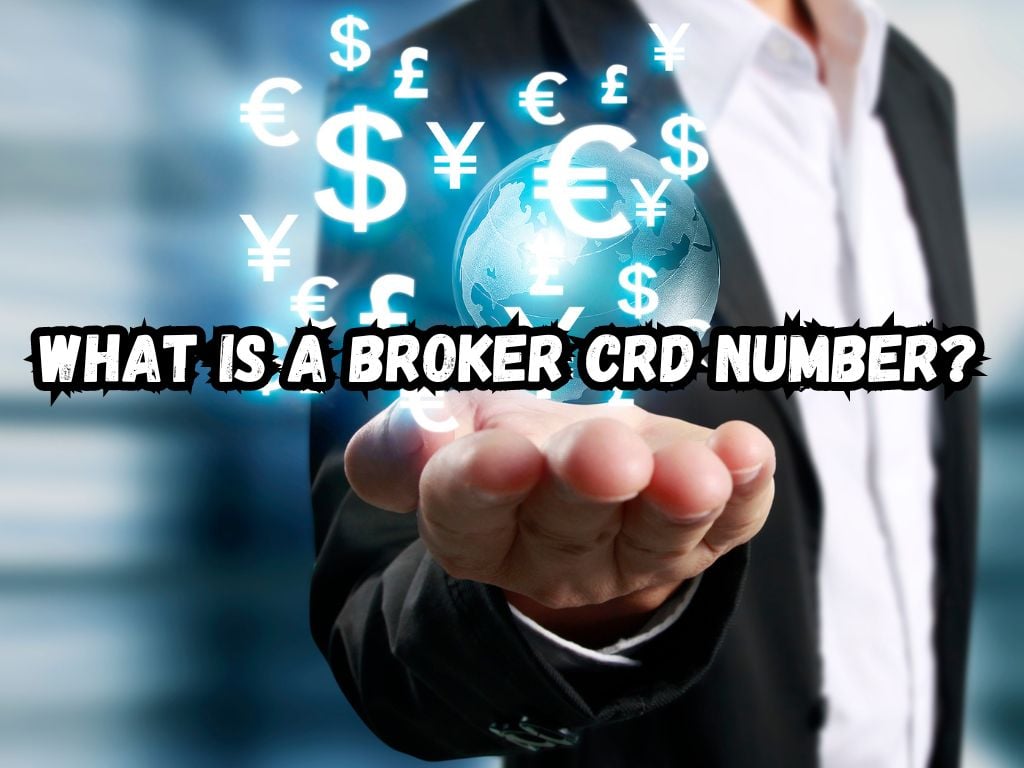Navigating the world of financing and investments often feels akin to voyaging through a dense forest. There are numerous interconnected paths to explore, with each leading down unique avenues promising potential riches or disastrous pitfalls.
In this complex maze, the guidance of a knowledgeable broker often seems indispensable. But even here, lie intricacies that must be understood, So, what is a broker CRD number?
This piece unveils what a broker CRD number is, its significant role in the finance world, and the ways to effectively utilize it.
What is a Broker CRD Number?
Before the intricacies, one must start with the basics. So, what exactly is a broker CRD number? Standing for Central Registration Depository (CRD) number, it’s a unique identifier allocated to each broker and brokerage firm within the United States.
The entity behind this operation is none other than the Financial Industry Regulatory Authority, often simply referred to as FINRA. Being a self-regulatory organization, it functions under the broader ambit of the Securities and Exchange Commission (SEC).
FINRA’s role is to ensure the smooth functioning of the securities industry by adopting and enforcing rules and regulations that govern the ethical activities of all registered broker-dealer firms in the U.S.
The CRD system is part and parcel of this system, acting as a comprehensive repository that stores the vital licensure, qualification, and the disciplinary history, if any, of the brokers operating within the United States.

Probing The Significance of a Broker’s CRD Number
A broker’s CRD number isn’t merely a string of digits. It’s much more than that, being a multi-faceted tool that helps potential investors get a birds-eye view of a broker’s professional journey.
Comprehensive View of Employment History
Every CRD number offers one a comprehensive view of a broker’s employment history. It provides critical insights, such as the list of firms they’ve had affiliations with and the duration of their individual stints with each of these.
Spotting a steady job history or identifying potential warning flags of frequent job hopping can be quite revealing about the broker’s career stability.
Diving into Licensing Details
Being licensed is the absolute minimum prerequisite for a broker to operate lawfully. The CRD number allows prospective clients to check the licenses that a specific broker holds.
The types of licenses differ based on the services they provide and the securities they handle. Ensuring that a broker holds the required licenses to trade securities, or provide financial advice on them, is an absolute essential for every investor.
Disciplinary Actions and Their Relevance
One of the most vital pieces of information revealed by a CRD number is any disciplinary action taken against the broker.
This section meticulously records all regulatory violations, any fines leveraged, or suspensions that been enforced on the broker. It gives investors an accurate measure of a broker’s credibility and professional integrity.
Professional Information: Understanding Qualifications and More
But, the CRD number yields even more data. It shares important information regarding a broker’s professional qualifications which include details about examinations passed, and certifications earned.
This information can offer insights into the broker’s expertise in finance and investment, fostering an understanding of whether he/she can cater to your specific investment needs.
Making Use of a Broker’s CRD Number: A Guided Approach
Knowing the CRD number is just half of the game. The other half is understanding how to use it effectively. Once you have a broker’s number, resources, such as FINRA’s BrokerCheck, are at your disposal.
This free online tool helps you review a broker’s employment history, check the validity of certifications, licenses, and even obtain information of any regulatory actions, complaints, and arbitration awards.
To put it simply, a broker’s CRD number is akin to a professional DNA strand – unique to each broker and a telltale map of their financial career journey. It helps keep blossoming financial careers in check and ensures that it is free of fraud and deceit.

Frequently Asked Questions
What is a broker CRD number on a bank statement?
If you spot a CRD number on your bank statement, it usually denotes transactions related to investment services. Here, the CRD number is used to identify the broker or the brokerage firm that facilitated the transaction on your behalf.
What is a broker CRD number in FINRA’s context?
In FINRA’s universe, a broker’s CRD number is the unique identifier that’s used within the Central Registration Depository system. Its purpose is to register brokers and track their compliance with ethical, professional norms, and chart their history within financial markets.
What might a broker CRD number example look like?
A broker CRD number is a specific series of digits, for instance, 1234567. Each is unique, pointing to an individual or firm registered within the comprehensive FINRA database.
Can I trust a broker who doesn’t have a CRD number?
Having a CRD number is an absolute must for a broker operating within the United States. Any broker operating without one could possibly be unregistered in FINRA – a fundamental requirement for legal operation within the realm of U.S finance. Therefore, they should be avoided at all costs.
Conclusion
Understanding the concept of a broker CRD number is like getting a pair of glasses with the right prescription strength. It helps one ‘see’ and assess brokers in a clearer light, and is an investor’s initial line of defense.
In the world of finance, it is a standard tool that acts as a gatekeeper of transparency, ensuring systematic due diligence. Irrespective of whether you’re a new or seasoned investor, taking the time to verify a broker’s CRD number is an attest to prudent thinking.
In a world where financial decisions leave a lasting impact on one’s future, standard practice should always be ensuring that your chosen broker is registered and holds a legitimate CRD number.
Not treating it as an optional feature, but as an essential standard, could be your first step toward robust and reliable financial planning.


 Tags:
Tags:










